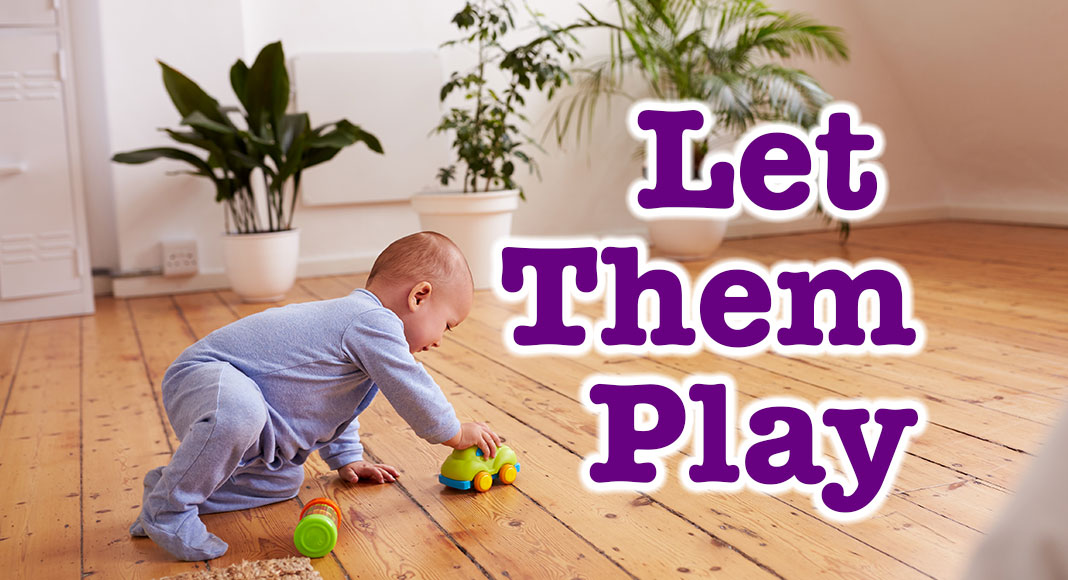
Mega Doctor News
By Society for Research in Child Development (SRCD)
Newswise — The benefits of object play (blocks, puzzles, cars, dolls and so on) for infant learning and development are well documented. However, nearly nothing is known about how natural play unfolds in the ecologically valid home environment (real-life settings). Indeed, research on infant play is limited to structured tasks in child-friendly lab environments, where infants engage with predetermined objects for a fixed amount of time. Although structured observations illuminate how infants explore, interact, and learn with novel objects under controlled conditions, they reveal little about how infants spontaneously play in their everyday environments. A new study published in Child Development by researchers at New York University aimed to address this gap by examining infant free play outside the confines of a lab setting and pre-selected toys.
“Our findings show an essential first step in identifying the everyday inputs to infants’ natural learning,” said Catherine Tamis-LeMonda, Professor of Applied Psychology at New York University. “At a time in development when infants must acquire information about what objects are and what they can do with them, massive amounts of practice playing with a variety of objects at home is beneficial for learning. And varied exploration is adaptive. We thus seek to flip the narrative from a critique of what infants have not yet achieved to an acknowledgement of how infants interact with their natural learning environment at home.”
Study participants included 40 infants: 20 13-month-olds, 10 18-month-olds and 10 23-month-olds. Twice as many 13-month-olds were observed to enable comparisons between crawlers and walkers. Most infants were from White (75%), middle-class English-speaking families and were only children. Families were recruited in New York City through hospitals, referrals, and brochures. Mothers ranged from 27 to 46 years old and most (93%) had earned college or higher degrees and 65% worked part- or full-time. The study was conducted between December 2017 and September 2019. Families received a $75 gift card for each visit.
An experimenter recorded infants and their mothers with a handheld video camera during two home visits with minimal interference. Infants were free to interact with whatever objects were available. Object interaction was defined as infants manually displacing an object with their hands. Banging hands on a table or swiping hands on a surface did not count if the infant did not displace the object nor did touches with body parts other than the hands (e.g., kicking a ball, sucking on a pacifier) or touches to the infants’ own body (including clothing), the mother’s body, or a pet’s body.
During play at home, where objects abound and infants were free to play as they wished, babies transitioned among dozens of objects per hour in short bursts of activity, flitting between toys and non-toys alike. The short interactions added up to infants spending 60% of their time interacting with objects. Moreover, infants spent as much time playing with household objects—bins, boxes, pillows, remote controls, stools, cabinet doors, and so on—as they did with toys. Such findings provide a key to understanding how object play might facilitate everyday learning and development.
“Our research yields an unprecedented picture of infants’ spontaneous object interactions,” said Orit Herzberg, postdoctoral fellow at New York University. “Instead of viewing infant behavior as flighty and distractible, infants’ exuberant activity should be viewed as a developmental asset—an ideal curriculum for learning about the properties and functions that propels growth in motor, cognitive, social and language domains. Infants learn about the world by playing with as many things as possible, in short bursts of activity. And every object is a potential play object.”
The authors acknowledge several limitations of the research. First, infants were drawn from predominantly White, upper-middle class, educated families living in a large metropolitan area, thus the experiment was not tested in other samples, including communities where manufactured toys are rare or even nonexistent. Additionally, infants’ object interactions were only observed with their mothers present; thus, whether infants’ spontaneous interactions vary by different types of social engagement remains an open question.








